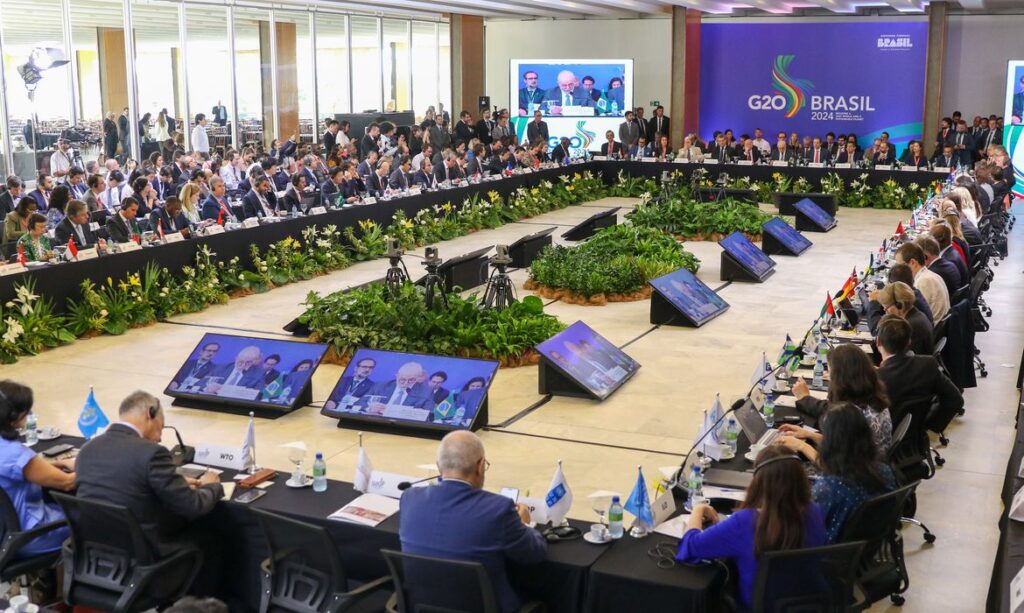About the G20
The G20 is the main forum for international economic cooperation.
The Group of 20 plays an essential role in shaping and strengthening global architecture and governance across all major international economic issues, representing around 85% of global GDP, 75% of world trade and approximately 2/3 of the planet's population.
Brazil holds the presidency of the G20 from December 1, 2023 to November 30, 2024.
Initially, the G20 focused on broad macroeconomic issues, but has expanded its agenda to include trade, sustainable development, health, agriculture, energy, the environment, climate change and combating corruption.

The G20 Summit
The G20 Leaders' Summit is the meeting between the Heads of State or Government of member countries.
Since December 1, 2023, the Federative Republic of Brazil has held the rotating presidency of the G20, and will host the Leaders' Summit in 2024. In addition to Brazil, the G20 member countries are India, South Africa, Argentina, Australia, Canada, China, France, Germany, Indonesia, Italy, Japan, Mexico, Russia, Saudi Arabia, South Korea, Turkey, United Kingdom, United States of America, African Union (who will participate for the first time this year) and the European Union.
The term “Dome” originates from its English definition, “Summit”, and refers to the highest point of a mountain. The Summit is therefore the culmination of more than a hundred G20 meetings over the course of a year. In Brazil, the event is scheduled for November 18th and 19th, 2024, in Rio de Janeiro.

